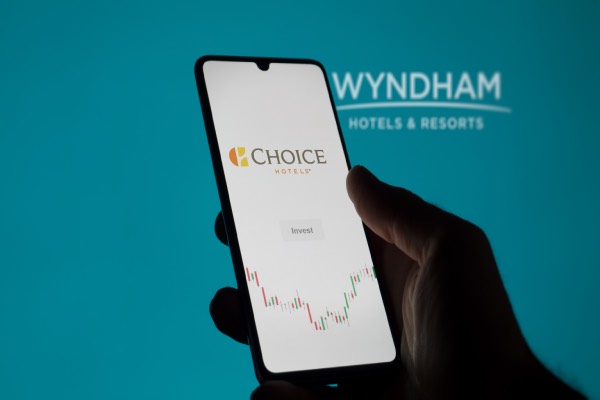Choice Hotels is launching a hostile takeover of Wyndham Hotels & Resorts after its initial entreaties to acquire the hotel franchisor were rebuffed.
Choice said in a statement that a deal with Wyndham is “pro-competitive” and would generate value for shareholders of both companies, while delivering “significant benefits” to franchisees, guests and associates of both companies.
“While we would have preferred to come to a negotiated agreement, the Wyndham Board’s refusal to explore a transaction has left us with no choice but to take our proposal directly to Wyndham’s shareholders. Wyndham chose to publicly reject our last proposal without any engagement even after we addressed their concerns, including adding significant regulatory protections for their shareholders,” said Patrick Pacious, president and CEO of Choice Hotels International.
Pacious also told The Wall Street Journal that one of the benefits of a combined company would be its leverage over online travel agencies, allowing them to negotiate better terms.
Choice has launched what is called an “exchange offer” to acquire Wyndham, basically a type of tender offer in which securities or other non-cash alternatives are offered in exchange for shares.
“We look forward to meeting with Wyndham’s shareholders in the days and weeks ahead and to continuing the regulatory approval process we’re starting this week,” said Pacious.
At present, Choice holds 1.5 million shares of Wyndham common stock, valued at more than $110 million and has filed a Hart-Scott-Rodino notification to begin the required regulatory review. Time and speed are vital to Choice since the exchange offer is set to run out March 8.

TERMS OF EXCHANGE OFFER
The offer remains unchanged from the previous offer, which consisted of $49.50 in cash and 0.324 shares of Choice common stock per Wyndham share, representing a value of $40.5 based on Choice’s trading price as of October 16, 2023, the day before Choice’s first public offer (pre-release date).
The exchange offer will allow Wyndham shareholders to elect to receive the consideration in all cash, all shares or a combination of cash and shares, subject to a customary proration mechanism.
The exchange offer includes a regulatory ticking fee of $0.45 per Wyndham share per month, equivalent to $38 million per month, accruing daily after the one-year anniversary of the date a majority of Wyndham’s shares are tendered into the offer.
Wyndham publicly rejected the previous proposed terms on November 21.
UNCHANGED OFFER TERMS, SAYS WYNDHAM
Confirming that it has received an “unsolicited exchange offer” to acquire all outstanding shares of Wyndham common stock, Wyndham said in a statement that its board of directors will “review and evaluate the offer to determine the course of action that it believes is in the best interests of Wyndham” and its shareholders.
Choice’s offer appears unchanged from the November 14 letter and is currently valued at approximately $86 per share, Wyndham said.
The offer, however, appears to be unchanged from Choice’s previous “highly conditional” offer the board had reviewed and rejected, which did not address some of the concerns which Wyndham had flagged, including:
- Asymmetrical risk to Wyndham shareholders, given the uncertainty around antitrust approval (if any) and the estimated 24-month timeline previously cited by Choice.
- Undervaluation of Wyndham’s superior, standalone growth prospects.
- The value of Choice shares compared to its growth prospects and further compromised by elevated levels of leverage that this deal would require.
Along with the 10 Wyndham shares Choice had earlier disclosed, the company has announced ownership of less than 1.7% of Wyndham common stock and said they were restricted from future purchases without antitrust approval, Wyndham said in the release.
The board will advise shareholders regarding the proposal in 10 business days and urged shareholders not to take any action until the board announces its recommendations.
A combined Choice and Wyndham would consist of more than 16,000 hotels globally, mostly in the midscale and economy segments.
